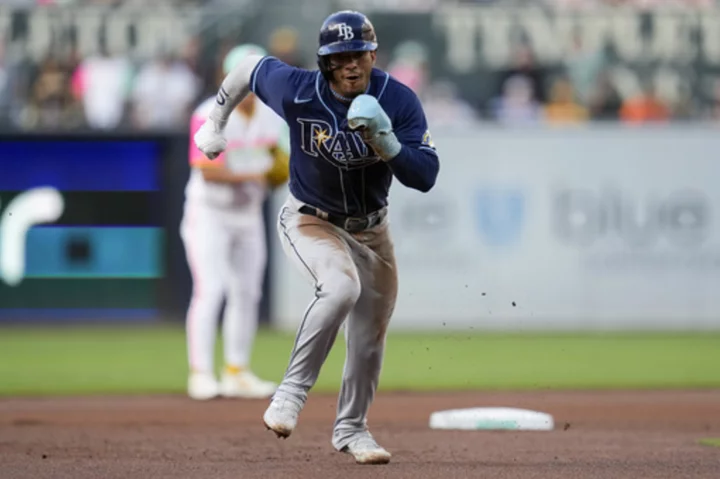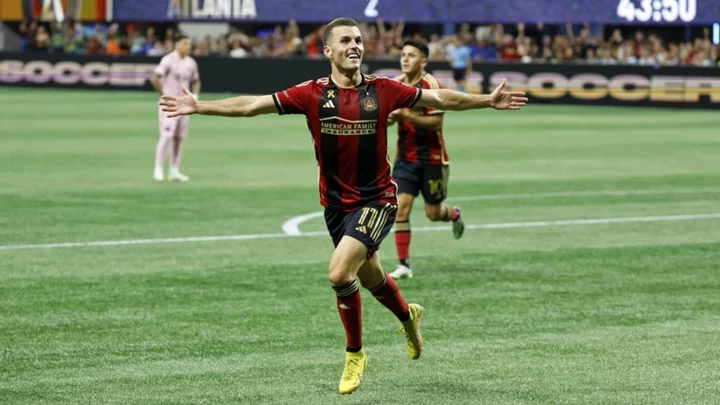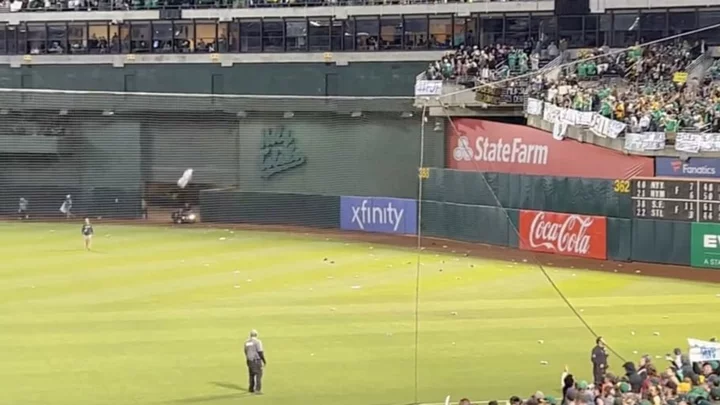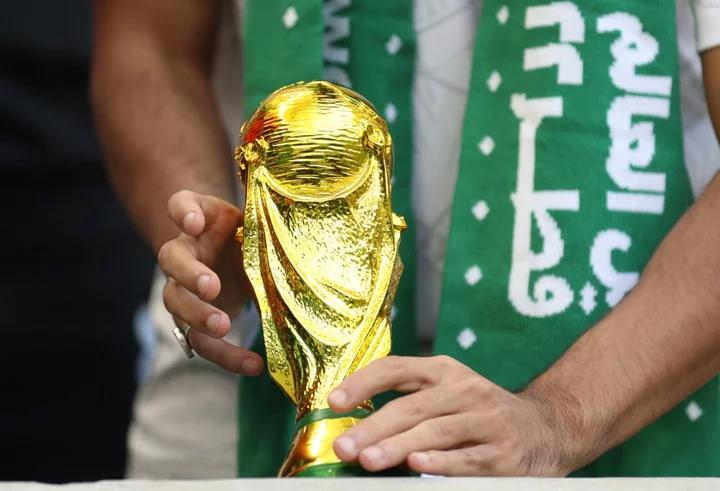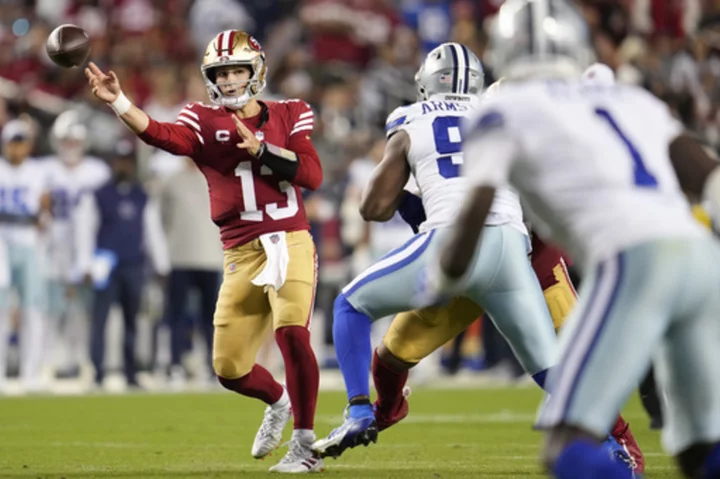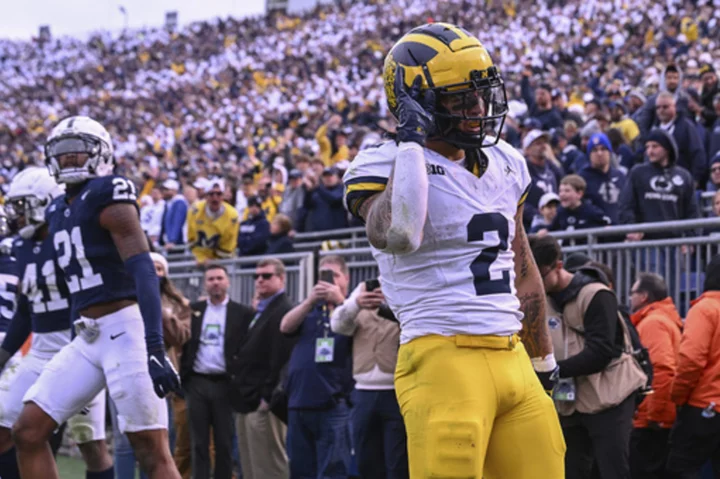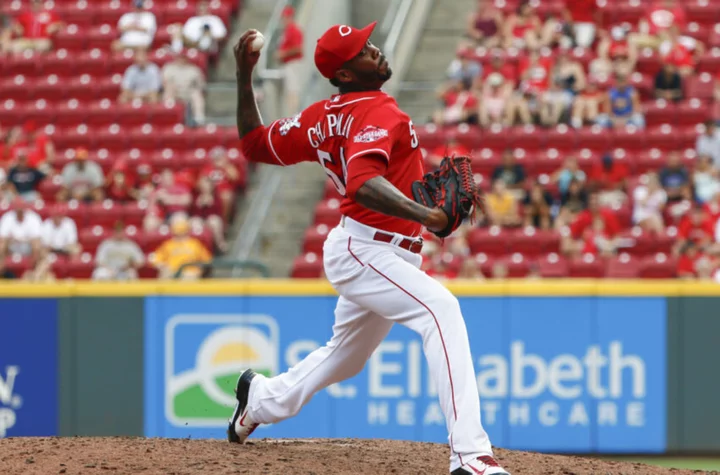NEW YORK (AP) — Tampa Bay shortstop Wander Franco is on track to receive the largest amount from this year’s $50 million pre-arbitration bonus pool based on his regular-season statistics.
Franco is projected to get $896,755, according to WAR calculations through June 26 that Major League Baseball sent to teams, players and agents in a memo Friday that was obtained by The Associated Press.
Arizona rookie outfielder Corbin Carroll would get $834,131, followed by Minnesota right-hander Joe Ryan ($739,015), Texas catcher Jonah Heim ($690,039), Tampa Bay left-hander Shane McClanahan ($680,600), Arizona shortstop Geraldo Perdomo ($638,768), Atlanta right-hander Bryce Elder ($634,912), Chicago Cubs left-hander Justin Steele ($614,798) and Seattle center fielder Julio Rodríguez ($594,527).
A total of 100 players will receive the payments, established as part of last year’s collective bargaining agreement and aimed to get more money to players without sufficient service time for salary arbitration eligibility. The cutoff for 2023 was 2 years, 228 days of major league service.
Several of the eligible players have long-term contracts. Franco has a $2 million salary this season as part of a $182 million, 11-year deal, Rodríguez has a $4 million salary in a $209.3 million, 12-year deal, and Carroll a $1 million salary in a $111 million, eight-year agreement.
Most young players have salaries just above the major league minimum: Ryan earns $730,250, Heim $745,660 and McClanahan $737,000.
As part of the labor agreement, a management-union committee was established that determined the WAR formula. The agreement calls for an interim report to be distributed the week before the All-Star Game.
Based on last year, MLB anticipates $11.25 million of the pool will go to award winners and $38.75 million will be distributed based on WAR. A player earns $2.5 million for winning an MVP or Cy Young Award, $1.75 million for finishing second, $1.5 million for third, $1 million for fourth or fifth, or for making the all-MLB first team. A player also gets $750,000 for winning Rookie of the Year and $500,000 for second, or for making the all-MLB second team.
Others on track to receive more than $500,000 are Baltimore right-hander Yennier Cano at $568,737, Tampa Bay outfielder/first baseman Luke Raley $553,188, Atlanta right-hander Spencer Strider $530,817, Baltimore catcher Adley Rutschman $530,265, Texas center fielder Leody Taveras $518,973, Tampa Bay third baseman Isaac Paredas $515,382 and Seattle right-hander George Kirby $509,445.
Cincinnati infielder Elly De La Cruz, who made his major league debut on June 6, already is projected at $262,382, just above Cleveland closer Emmanuel Clase at $258,719. De La Cruz's number figures to climb if he keeps playing at such a high level.
Chicago White Sox right-hander Dylan Cease received the largest amount last year at $2,457,426, followed by Houston designated hitter Yordan Alvarez at $2,381,143 and Toronto right-hander Alek Manoah at $2,191,023.
During bargaining, Major League Baseball had proposed a statistical formula to replace salary arbitration, which covers players with three-to-six years of major league service plus several of the players between two and three years. The players’ association steadfastly opposes scrapping arbitration, though St. Louis reliever Ryan Helsley said after losing his hearing that he might be open to a change.
“Maybe come up with some kind of algorithm for second- and third-year guys so you can avoid that kind of confrontation, so to speak,” he said. “They’ve obviously had this system for many years now, but maybe we’ll see that in the future.”
The union believes arbitration is more beneficial than a statistical system, causing teams to submit proposed figures greater than under a numbers-based formula and resulting in higher settlements of cases that don't go to hearings. Arbitration also allows players who disagree with a team's evaluation to argue before neutral parties.
___
AP MLB: https://apnews.com/hub/mlb and https://twitter.com/AP_Sports

